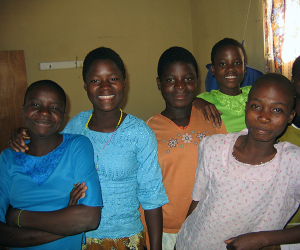Searchable Database Offers Evidence of SBCC Impact in Urban Youth SRH Programs
A new searchable database of evidence culled from a literature review and program scan of urban youth sexual and reproductive health (SRH) and social and behavior change communication (SBCC) programs is now available from the Health Communication Capacity Collaborative (HC3).
The searchable database contains 123 peer-reviewed journal articles as well as so-called “grey” literature gathered for Influencing the Sexual and Reproductive Health of Urban Youth through Social and Behavior Change Communication: A Literature Review. The review examined the design, implementation and evaluation of programs from nearly 30 SRH SBCC youth interventions in low- and middle-income countries around the world. It details the range of drivers, barriers and contextual factors that influence urban youth’s SRH at all levels of the social ecological model, as well as recommendations for planning and implementing SRH SBCC interventions for this population in an urban environment.
Although young people share some similarities in their development and transition from adolescence to adulthood, the place they live can have a significant impact on their lives. Urban areas may have more infrastructure and services than rural areas, but being geographically surrounded by such resources does not guarantee access to them. This is particularly true for poor and marginalized young people.
The social and cultural context surrounding young people growing up in urban areas is also different, in both positive and negative ways. This often affects the health behaviors of young men and women, who can develop repeated behaviors and habits that persist throughout adult life.
The database can be searched alphabetically by author, topic or keyword. The database includes an abstract of each article as well as a link to the actual publication. HC3 plans to develop several more searchable databases in the coming weeks related to the evidence supporting the use of SBCC in family planning programs, child survival and HIV/AIDS.
The Health COMpass has also compiled a number of youth SBCC resources from around the globe.









Leave a Reply
Want to join the discussion?Feel free to contribute!